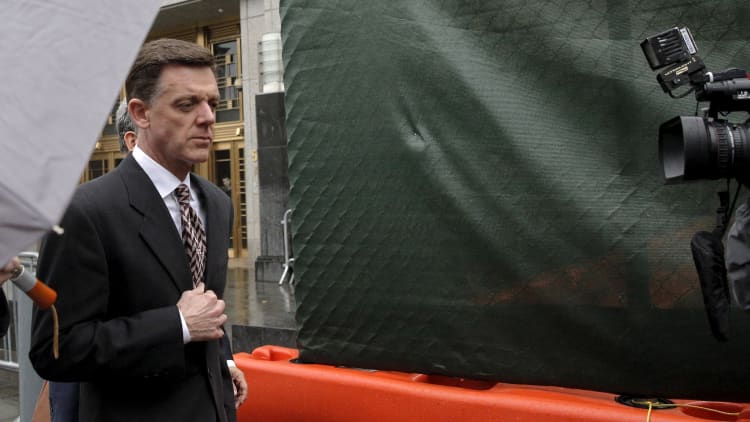Nebraska voters overwhelmingly supported a ballot initiative Tuesday that caps rates on payday loans at 36% throughout the state, even as federal legislation restricting these high-cost loans remains stalled.
Roughly 83% of Nebraska voters approved Measure 428, according to the Nebraska Secretary of State, which provides election results. The ballot measure proposed putting a 36% annual limit on the amount of interest for payday loans. With its passage, Nebraska is now one of 17 states, in addition to Washington, D.C., to impose restrictions on payday loan interest rates and fees, according to the ACLU.
"This is a huge victory for Nebraska consumers and the fight for achieving economic and racial justice," Ronald Newman, national political director at the ACLU, said in a statement. "Predatory payday lending makes racial inequalities in the economy even worse — these lenders disproportionately target people of color, trapping them in a cycle of debt and making it impossible for them to build wealth."
Previously, the average interest rate for a payday loan in Nebraska was 404%, according to the Nebraskans for Responsible Lending coalition, which helped get the initiative on the ballot.
Lenders who offer these small loans, which you can generally take out by walking into a lender with just a valid ID, proof of income and a bank account, require borrowers to pay a "finance charge" (service fees and interest) to get the loan, the balance of which is due two weeks later, typically on your next payday. Lenders in Nebraska could charge up to $15 per $100 loaned, and individual borrowers can take loans for up to $500, according to the Consumer Federation of America.
Nebraska joins a handful of states that have voted to pass payday loan limitations in recent years. South Dakota voters approved a 36% cap in 2016 and Colorado followed in 2018. Ohio put restrictions on rates, loan amounts and duration that went into effect last year. New Hampshire put a 36% rate cap into effect in 2009, and Montana's state legislature passed a similar law in 2010.
Beyond rate caps, Arizona, Arkansas, Connecticut, Georgia, Maryland, Massachusetts, New Jersey, New York, North Carolina, New Mexico, Pennsylvania, Vermont and West Virginia prohibit these types of loans and several include interest rate caps on other types of consumer loans.
Across the U.S., 37 states have specific statutes that allow for some type of payday lending, according to the National Conference of State Legislatures.
Federal lawmakers introduced similar legislation through the Veterans and Consumers Fair Credit Act in November 2019 that would cap interest rates at 36% for all consumers nationwide. The bipartisan legislation — which is the latest attempt to curb payday loans at the federal level — was built off the framework of the 2006 Military Lending Act, which capped loans at 36% for active-duty service members.
Despite both Democrat and Republican co-sponsors, the bill remains stalled, forcing state groups like Nebraska's coalition to push ahead with local campaigns.
Advocates hope that the win in Nebraska will cause lawmakers and voters nationwide to take note. "[This] vote proves that we can still find common ground on important issues, including economic and racial justice. Protecting our neighbors isn't a red or blue value, it's an American value," says Danielle Conrad, executive director at the ACLU of Nebraska.
Check out: A guide to resources that can help you pay bills now, from rent to health care
Don't miss: Chase Sapphire Preferred is offering a massive 80,000-point bonus for a limited time



